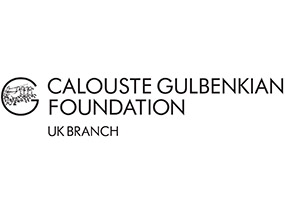The spirit of Governance! I’ve heard this expression a few times recently. I like it because it sees governance through the lens of a set/sets of human relationships, or an ethical framework, as opposed to a box-ticking exercise, or worse, a list of things to remember ‘not to do’.
I sometimes think of Governance as the boxing ring in which vision, mission and values bounce around in. The ring is secure but the ropes are flexible. The more you understand the rules of the game, the more you’ll get out of it and the more competitive you’ll be.
And so it was with spirit that I leapt into the ring of last week’s ‘Governance Now’ conference, run by the Clore Leadership Programme, during Trustees Week, and marking the launch of the Cultural Governance Alliance – a collective of agencies, organisations and advocates working to champion, share and promote best practise in the governance of culture.
A week later, here are the things on my mind:
- Board Members need training too! And particularly in finance….
Keith Arrowsmith is Clore Governance Associate. In his experience very few (very, very few) Board Members understand the financial reports they are presented with at meetings. He advocated for inclusion of a funding line for skills training for Board Members, and when recruiting Board Members to consider skills as opposed to experience. The common Shopping List approach of Lawyer, Accountant, Marketing Manager doesn’t always yield the required outcomes. And think about applying the same Equal Opportunity processes to Board recruitment as per Staff recruitment – collect the data and measure the outcomes.
And be flexible! Does Board Membership need to be 3-4 years – it could be less? Maybe a new/updated Constitution is required?
- Boards and Giving – the elephant in the room
Michelle Wright, CEO Cause 4 provoked us with the following - If you’re not passionate to donate, why are you on the Board? Naturally there was an ensuing discussion about financial barriers and how far the UK is from the US Trustee model based on patronage and connections but we were also equipped with some interesting examples about boards ‘collectively’ giving i.e. to a total of their individual means i.e. Board of organisation X named as first donor to organisation’s X Programme of activity – acting as a catalyst for further giving.
- Who is on your board #Where are the young people?
According to NCVO (National Council for Voluntary Organisations) the average age of Trustees in England is 62. Two thirds of chairs are men. He, and others throughout the day, asked us to consider the following
- Does your board membership represent the audiences your organisation seeks to reach?
- Are all board members clear on the key questions - what we are here for, and linked to that – who are we here for?
We heard passionate testimonies from two Roundhouse Young Trustees who had joined the organisation’s Board further to being participants in Roundhouse programmes, and then members of the Young Advisory Board. Have a look at this document: ‘Guided by Young Voices: How to include young people on your board and in your decision making process’.
See also Arts Council England Culture Change Guide: How to create diverse boards . In NI, the A&B NI Young Professionals on Arts Boards programme recruits and trains young NI based business professionals who want to join arts boards, and this can be a practical process to support you in bringing younger Board members to the table.
There’s nothing in the rules that says Trustees need to fundraise, but Michelle advised on the importance of being clear on policy – don’t leave it as a grey area: as a minimum say the Board will support fundraising. As a starter for ten, the Charity Commission for Northern Ireland (CCNI) has a quick read Fundraising Guide at a Glance for Trustees.
- Boards and environmental practice – LEAD!
Sian Alexander, Chief Executive, Lyric Hammersmith and Trustee, Julie’s Bicycle gave us 14 Steps to Good Green Governance. Boards are well-placed to lead on a Green Policy, and actually not just well-placed – it’s our duty and responsibility! Write a policy and with objectives – it doesn’t need to be complicated. Enshrine into governance documents and procurement policies. Share practise and learn from others. There are loads of resources available on the Julie’s Bicycle website (you may have heard Catherine Bottrill speak at the APAC conference in Belfast earlier this year).
See also Nick Serota’s opinion piece in the Guardian this month - ’The arts have a leading role to play in tackling climate change'.
- Anticipating and preparing for change
This was an interactive workshop led by Richard Sandford, Professor of Heritage Evidence Foresight and Policy, UCL Institute for Sustainable Heritage, and it was incredibly thought-provoking. I’d recommend it to everyone. We were given 2 thematics i. Artificial Intelligence and ii. Polarisation and Trust, with a page description on each, and asked to consider the effects of each on our organisations. Ultimately we talked about how finding new ways to see what we have in the present is what arts, culture and heritage does – we are the repertoire that people will look back at. We left with 2 actions i. Find one alternative way of seeing the world – take a different route to work; talk to someone you otherwise wouldn’t (or don’t talk to someone you normally would!) and ii. Ask how your organisation’s next project will relate to the future (and not just the future of the organisation).
Remembering the spirit of good governance, it’s fitting to close with a comment Sir John Tusa made at the conference:


